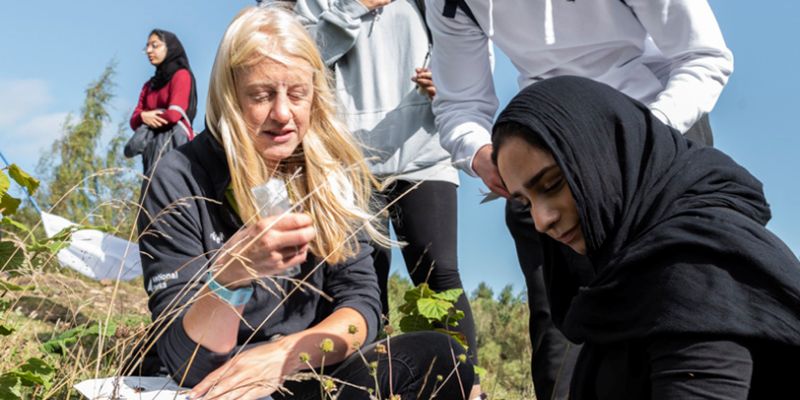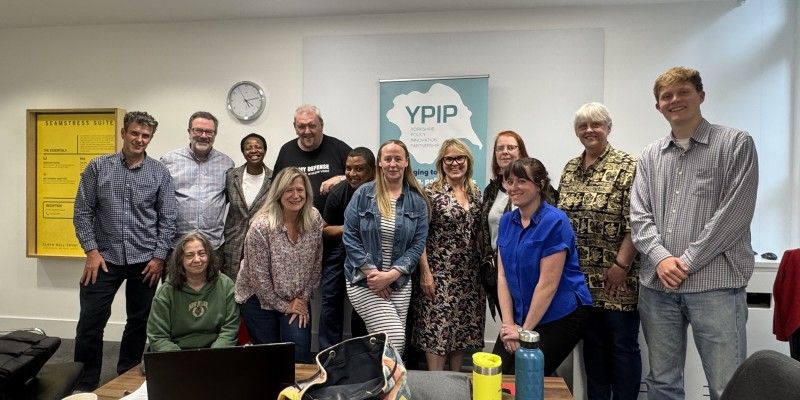
Yorkshire companies will be offered help to “youth-proof” their businesses and harness neurodiversity in their workforce, under two of the awards made by an innovative grant project.
The Communities Innovating Yorkshire (CIY) Fund, administered by the Yorkshire Policy Innovation Partnership (YPIP), has seen £800,000 given out in the region for projects ranging from local food growing networks to jobs and skills programmes and targeted support for businesses. It aims to put academic funds at the service of communities and businesses.
The CIY fund is split into five themes, with between four and five projects awarded funding under each. The themes are:
• Collecting and utilising community data
• Good work and better business
• Culture and creative Industries
• Climate-ready places
• Communities in their places
Education charity the Lighthouse Futures Trust and Leeds-based consultancy ThinkND have won one of four ‘Good work and better business’ grants. Their project will focus on working with neurodiverse people looking for jobs. They will co-create practical tools and guides for employers, showing them how to harness neurodiversity as a competitive advantage for their business.
We know that barriers exist and believe we can help to highlight the many simple things employers can do to make the work environment one in which neuro-divergent people can thrive.
Programme Manager Sally-Anne Greenfield said: "The work we already do with neuro-divergent employees demonstrates the many skills and talents they bring to the workplace, not least because they think in a different way which can lead to excellent problem-solving ability, and real innovation.
“We know that barriers exist and believe we can help to highlight the many simple things employers can do to make the work environment one in which neuro-divergent people can thrive."
The other three projects greenlit under this theme for CIY Fund support are:
- Yorkshire Dales National Park Authority has teamed up with Bradford College to offer young people from marginalised communities in the city, including refugees and asylum seekers, training and help to get into careers in the green sector.
- Shipley-based business My Life Coach has a project to help smaller businesses significantly improve productivity with a self-service digital experience.
- A project by Sheffield Futures called NextGen Consulting will see specialist “young consultants” help companies to assess their policies, culture, and practices from a youth perspective, with the aim of attracting and engaging talented young employees.
Heidi Reinsch, Vice Principal of Equality, Diversity and Inclusion at Bradford College, said: “We are really excited about this new project and are hoping it will give our ESOL [English for speakers of other languages] students the opportunity to plan and participate in meaningful practical projects in our local area. It will enable them to feel a part of the community and see how they can contribute to it, offer practical work experience in areas they might not have considered open to then, and boost their self-confidence and aspirations, all alongside giving them the chance to use their developing language skills in real-life situations and learn vocabulary in context.”
Kirsty Sandamas, Project Lead for NextGen consulting added: “Every young person deserves a fair opportunity to find good work. By addressing the barriers young people face and equipping employers to respond, we’re creating fairer access to work, stronger support systems, and workplaces where young people can thrive. When workplaces truly listen to young people, they don’t just gain employees, they help shape confident, capable leaders ready to build the future.”
These projects show what can be done when resources meet vision
The CIY Fund is a ringfenced portion of YPIP’s overall funding and represents the first time government research funding has been prioritised in this way for collaborative projects between communities, businesses and public sector organisations. Whilst academics could be included as project partners, the new commissioning model focuses on collaborations working in local spaces for funding.
Professor Gary Dymski of Leeds University Business School is the Principal Investigator for YPIP. He said: “We are proud to have funded these transformative projects. The work enabled by CIY Fund awards will point the way to a more equitable future for the nation.
“Investing in the ideas of everyday people in our own communities can help to restore the UK’s national dynamism. These projects show what can be done when resources meet vision; and what better place to initiate a new phase of innovation thinking than Yorkshire?”
The fund received 236 grant applications and awarded grants to 22 projects. Of those, 19 are led by voluntary, community, faith or social enterprise organisations; another two are led by public sector bodies; and one by a business.
Other funded projects include a plan to reinvigorate Jamaica House in Leeds – once a cornerstone for the Windrush generation in Yorkshire; plans to boost local food growing; and musical opportunities for young people going through the Youth Justice System.
Kersten England CBE co director of YPIP said: “Community-led research was at the heart of our proposals for the Yorkshire Policy Innovation Partnership. It’s really exciting to see that commitment become a reality as we fund these 22 community-led research projects. I am confident these projects will yield powerful insights about how we can collectively build a fairer and more prosperous Yorkshire.”
YPIP is part of the government’s UK Research and Innovation (UKRI) funded Local Policy Innovation Partnership (LPIP) programme which provides resources to explore regional inequalities through inclusive academic-policy engagement by working with communities in their places.

Five community members joined the awarding panel to help decide where the CIY funding should be allocated. Among them was Maya Mihoc, 46, from Scarborough. She said: “Being part of the YPIP Community Panel was a powerful learning journey. It was clear from the start that the aim was to do things differently — more fairly, more humanely. What stood out most was the incredible group of people on the panel — each of us brought lived experience, empathy, and often underrated skills that shaped decisions in a meaningful way.
“Taking part in the grant decision-making process was deeply emotional; each application told a story of need, hope, and determination. This experience made it clear that immediate and bold innovation is needed in how grants are structured and distributed. Grassroots organisations are the heart of community change, and they deserve systems that truly reflect their value.
“I’m proud to have played a role, and I’m hopeful we can continue to uplift more voices in the future.”
Further information
- Main image: Young people in a green skills training session run by the Yorkshire Dales National Park Authority. Credit: Paul Harris/ Yorkshire Dales NPA.
- For more information please contact the University of Leeds press office via email on pressoff@leeds.ac.uk
- A full list of all CIY grants is available on the YPIP blog
- Sign up to the YPIP monthly newsletter to receive updates on how the projects progress